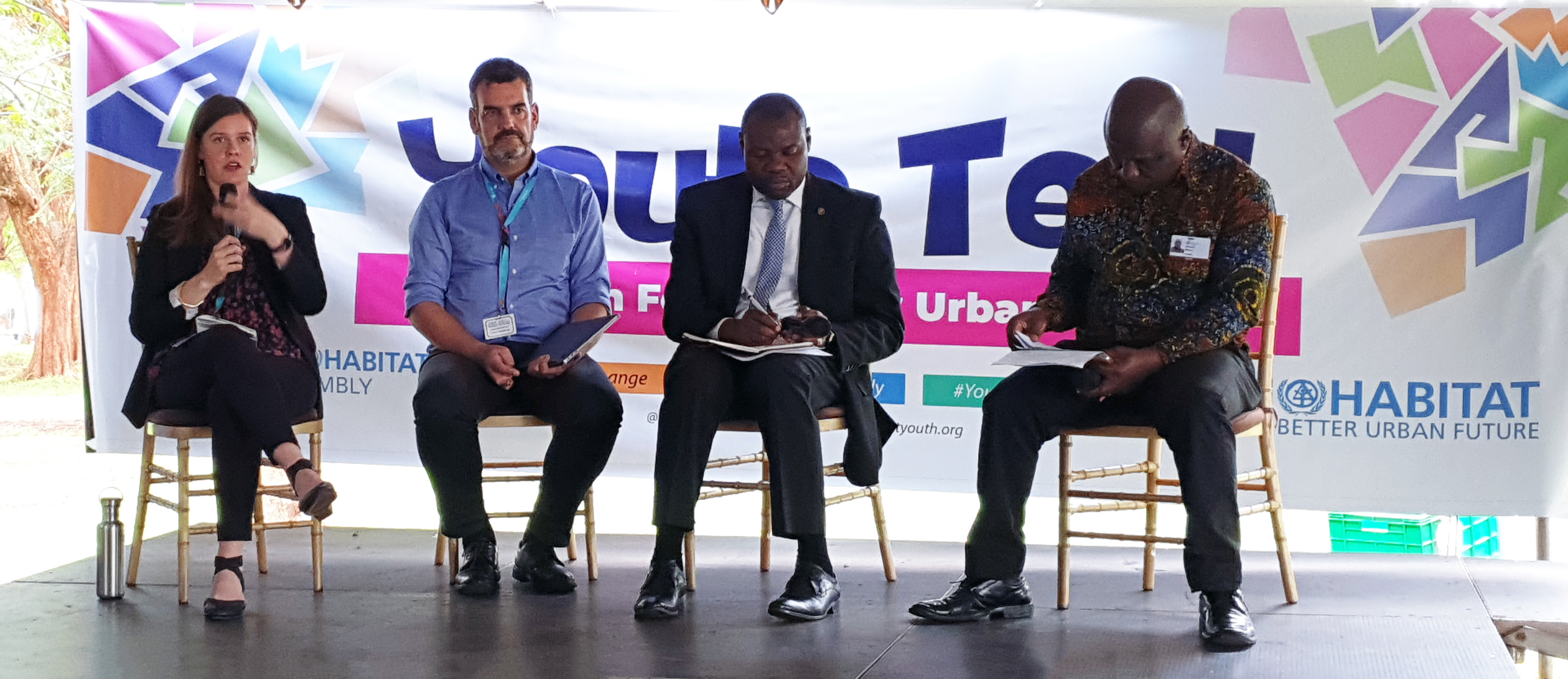Nairobi, 24 and 27 May 2019 - UN-Habitat in partnership with the Africa Population Health Research Center (APHRC), and the Urban Health and Well Being Programme (UHWB) of the International Science Council (ISC), recently held an Expert Group Meeting (EGM) on “Implementing the International Guidelines on Urban and Territorial Planning for improved environment and well-being” and the informal dialogue “Innovative approaches to planning and health for all” during the first UN-Habitat Assembly. Both events brought together participants from Civil Society organisations, UN Agencies, Academia and local Governments to discuss on different approaches to urban and territorial planning that put health at the centre of the decision-making process, to yield better health outcomes and an improved urban environment.
The EGM held on 24th May 2019, was moderated by Prof. Blessing Mberu from the APHRC. UN-Habitat shared an inspiring selection of its initiatives that put health at the centre of the decision-making process from different angles: water and sanitation, climate change and air pollution, public space and urban and territorial planning. In the second part, participants shared their perspectives and examples on the nexus between health and planning and provided feedback on some of the tools that UN-Habitat is developing.
The red thread of the discussion was that governments at all levels, along with United Nations agencies and other agents of change, must move from a growing recognition of the interlinkages between health and planning, to coordinated actions. The EGM concluded with a way forward on the engagement in upcoming events, joint initiatives and tool development activities.
The informal dialogue during the Assembly was moderated by Blessing Mberu and had as panellists: Franz Gatzweiler, executive director of UHWB; Sarah Ruel-Bergeron, architect and founder of ARCHIVE Global; and Remy Sietchiping, leader of the Regional and Metropolitan Planning Unit of UN-Habitat.
In his opening remarks, Mr. Wang Jun, Mayor of Songyang County (China), described its “architectural acupuncture” approach that aims to transform the county into a “healthy garden city” by, among many initiatives, “facilitating villagers to upgrade [traditional houses] with modest budgets”, “implementing ecologically-friendly agriculture” and revitalizing “low-carbon and environmentally-friendly modes of production and living”.
Instead of starting from the most vulnerable population, Franz provocatively invited the audience to “change perspective and talk about ourselves”, meaning the privileged part of the population that, even though small in numbers, has a major impact on urban and planetary health. Based on the observation that health problems in wealthy societies are often the result of too much (see for instance obesity), “we need to be slower, consume less, move more and eat less”. Among many UHWB activities, Franz described the “Urban Health Model”, a successful program that brought all ministers of El Salvador at the same roundtable to make sure that health is present in each and every policy.
By presenting an example of a multiscale intervention, Sarah highlighted the importance of micro scale models for improving people’s health: ‘one at a time’ and ‘from their homes’. She noted that “urban health starts at the household level”, hence the best intervention level. To improve sanitary conditions, the project started with the replacement of households’ floors and establishing waste management and sanitation systems at the community level.
All participants shared views on how to build coalitions of stakeholders to improve planning for health. All agreed on the importance of working with (and not for) local communities and on the urgency to create common tools, definitions and funding bodies that can facilitate and mainstream multidisciplinary approaches. In conclusion, Remy noted the need for all partners to work together to make and achieve change in planning for health.
Read the International Guidelines on Urban and Territorial Planning (Guidelines or IGUTP)
